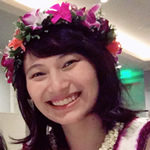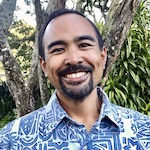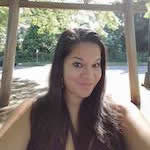Session Description
Fairy tales provide an enriching and entertaining learning opportunity for people of all ages. Our team has created a virtual world to provide individuals with a creative possibility space to learn more about the fairy-tale genre, while also drawing from key terms from literature studies, English, and Language Arts. Through the use of the virtual reality application, Open Simulator, in this initial launch of the “Land of Fairy Tales,” visitors are able to walk through and learn about components of a specific fairy tale: Little Red Riding Hood (LRRH). Learners can walk through one of two paths (versions) of LRRH, one created for younger audiences (elementary and middle school) and the other created for older students (high school and college). The design of this world utilizes Gagne’s Nine Events of Instruction, along with the use of various instructional tools and assessments, to peak visitors’ curiosity, to get users immersed in the world, and have learners walk away with newfound knowledge at the end. Join us for our presentation of this unique virtual world and come away with a new and exciting way of immersing students in a new learning experience.
Presenter(s)
Session Type
LTEC Session
Audience
All Audiences
A recording of this presentation is available.
Click the button to the right to access the session archive.

 Jade Lum is a Ph.D. student and Graduate Assistant in English at the University of Hawaiʻi at Mānoa, where she also received her Master’s degree in English with a focus on literary studies. At the University of Hawaiʻi at Mānoa she teaches first-year writing composition, and has also taught an Introduction to Literature course with a focus on the fairy tale genre. Most recently, she published chapter work in the book Contemporary Fairy-Tale Magic: Subverting Gender and Genre. Her research interests include fairy tale studies, gender studies, adaptation studies, and visual and new media storytelling and rhetoric, particularly drawing from film and video game studies.
Jade Lum is a Ph.D. student and Graduate Assistant in English at the University of Hawaiʻi at Mānoa, where she also received her Master’s degree in English with a focus on literary studies. At the University of Hawaiʻi at Mānoa she teaches first-year writing composition, and has also taught an Introduction to Literature course with a focus on the fairy tale genre. Most recently, she published chapter work in the book Contemporary Fairy-Tale Magic: Subverting Gender and Genre. Her research interests include fairy tale studies, gender studies, adaptation studies, and visual and new media storytelling and rhetoric, particularly drawing from film and video game studies. Jaymian (Jaymi) Urashima is currently a PhD student at the University of Hawaii at Manoa in the Learning Design and Technology (LTEC) department. She completed her BA and MA at the University of Hawaii at Manoa in the Communicology department. Jaymi currently works as an Instructor/Course Director in the Communicology department, where she teaches public speaking and a variety of communication-related courses.
Jaymian (Jaymi) Urashima is currently a PhD student at the University of Hawaii at Manoa in the Learning Design and Technology (LTEC) department. She completed her BA and MA at the University of Hawaii at Manoa in the Communicology department. Jaymi currently works as an Instructor/Course Director in the Communicology department, where she teaches public speaking and a variety of communication-related courses. Dan Boulos is a classically trained animator and story artist with screen credits including Beauty and the Beast (Walt Disney Feature Animation), Space Jam (Warner Brothers Feature Animation) and The Prince of Egypt (DreamWorks Feature Animation). After more than a decade in the feature film industry in Los Angeles Dan moved to Honolulu where he founded Wiki Wiki Cartoons. During his years in Hawaii he developed animation programs for the University of Hawaii Community College System as well UH Manoa, the 4-year research campus. Also, Dan was a founding member of the European Animation Masterclass (EAM) a project of the European Media Fund which trained professional animators from EU member states. Dan has a Masters degree in Education (M.Ed. 2010) from the University of Hawaii at Manoa and a BFA from Cal Arts Character Animation (1989). His writing has been published in academic journals in both education and computer graphics and he has presented at academic conferences in the US, Spain and Switzerland. Dan has taught courses in traditional hand drawn full-animation as well as 3D CG-animation and various digital 2D and hybrid techniques. He is an active artist and filmmaker while continuing his work in animation scholarship.
Dan Boulos is a classically trained animator and story artist with screen credits including Beauty and the Beast (Walt Disney Feature Animation), Space Jam (Warner Brothers Feature Animation) and The Prince of Egypt (DreamWorks Feature Animation). After more than a decade in the feature film industry in Los Angeles Dan moved to Honolulu where he founded Wiki Wiki Cartoons. During his years in Hawaii he developed animation programs for the University of Hawaii Community College System as well UH Manoa, the 4-year research campus. Also, Dan was a founding member of the European Animation Masterclass (EAM) a project of the European Media Fund which trained professional animators from EU member states. Dan has a Masters degree in Education (M.Ed. 2010) from the University of Hawaii at Manoa and a BFA from Cal Arts Character Animation (1989). His writing has been published in academic journals in both education and computer graphics and he has presented at academic conferences in the US, Spain and Switzerland. Dan has taught courses in traditional hand drawn full-animation as well as 3D CG-animation and various digital 2D and hybrid techniques. He is an active artist and filmmaker while continuing his work in animation scholarship. Aloha Everyone! My name is Kawika Gonzales. I am a part of the LTEC online master’s cohort since Fall 2019. I am also a 6th-grade teacher on the island of Molokai and have been teaching for the past 19 years. Besides the core general education classes, I also teach robotics, computer-aided design, and computer science. More recently, I have incorporated more virtual and augmented reality into my classroom. I am the math and grade level chair for our school and a part of the leadership team. My wife and I have 3 young boys, one in 1st grade and the other 2 in preschool. I enjoy taking them fishing and hunting.
Aloha Everyone! My name is Kawika Gonzales. I am a part of the LTEC online master’s cohort since Fall 2019. I am also a 6th-grade teacher on the island of Molokai and have been teaching for the past 19 years. Besides the core general education classes, I also teach robotics, computer-aided design, and computer science. More recently, I have incorporated more virtual and augmented reality into my classroom. I am the math and grade level chair for our school and a part of the leadership team. My wife and I have 3 young boys, one in 1st grade and the other 2 in preschool. I enjoy taking them fishing and hunting. Aloha! My name is Kalei Carvalho. I am currently in my first year of the LTEC Master’s program and anticipate graduating in May 2021. I originally started this program with only the hope of advancing in my career in the future. However, I am beyond grateful that I took this opportunity because it has been very beneficial in my current line of work. I currently work as a Student Support for the Wai’ale’ale Program, which is one of the first-year experience programs at Kaua’i Community College. I have lived on Kaua’i my entire life and use any opportunity I have to help strengthen our community. The biggest motivations in my life, however, are my husband and my children.
Aloha! My name is Kalei Carvalho. I am currently in my first year of the LTEC Master’s program and anticipate graduating in May 2021. I originally started this program with only the hope of advancing in my career in the future. However, I am beyond grateful that I took this opportunity because it has been very beneficial in my current line of work. I currently work as a Student Support for the Wai’ale’ale Program, which is one of the first-year experience programs at Kaua’i Community College. I have lived on Kaua’i my entire life and use any opportunity I have to help strengthen our community. The biggest motivations in my life, however, are my husband and my children. Judy Kakazu received her BA in Zoology after switching her major no less than 7 times. As a result she knows very little about a lot of things. Judy then decided that she would take a break from academia and learn something fun. As a result, Judy has been a paramedic with the 911 system on Oahu for 30 years. Intermittently returning to the academia that she vowed never to return to, Judy has been fortunate to study subjects such as Human Physiology at the graduate level. After a recent work injury, Judy was given the opportunity to explore Learning Design and Technology at UH Manoa. As a first year student in the online Master’s program and under the mentorship of all within this excellent department, Judy is truly grateful and hopes to continue the privilege of learning, forever. Some of her interests include the gamification of learning, endocrinology and thinking outside of the box…
Judy Kakazu received her BA in Zoology after switching her major no less than 7 times. As a result she knows very little about a lot of things. Judy then decided that she would take a break from academia and learn something fun. As a result, Judy has been a paramedic with the 911 system on Oahu for 30 years. Intermittently returning to the academia that she vowed never to return to, Judy has been fortunate to study subjects such as Human Physiology at the graduate level. After a recent work injury, Judy was given the opportunity to explore Learning Design and Technology at UH Manoa. As a first year student in the online Master’s program and under the mentorship of all within this excellent department, Judy is truly grateful and hopes to continue the privilege of learning, forever. Some of her interests include the gamification of learning, endocrinology and thinking outside of the box… Rebekah Davis is a PhD student in the Learning Design and Technology program at NC State. She is the Digital Learning Graduate Assistant in METRC, the College of Education’s media resource center. Along with conducting in-house and conference workshops on technology integration topics, she teaches the Introduction to Instructional Technology class for undergraduates.
Rebekah Davis is a PhD student in the Learning Design and Technology program at NC State. She is the Digital Learning Graduate Assistant in METRC, the College of Education’s media resource center. Along with conducting in-house and conference workshops on technology integration topics, she teaches the Introduction to Instructional Technology class for undergraduates.
 Laura B. Fogle has over twenty years of experience in educational technology. She has taught in preschool, elementary and middle school. She has developed online graduate courses, and presented at regional and national conferences on the topic of instructional technology. She currently serves the College of Education at NC State University as the Assistant Director of Media and Education Technology Resource Center (METRC), where she enjoys working with students and educators to enhance teaching and learning with technology. She holds a BS in Electrical Engineering and a Masters in Instructional Technology. Her interests include makerspaces, virtual reality, and digital equity.
Laura B. Fogle has over twenty years of experience in educational technology. She has taught in preschool, elementary and middle school. She has developed online graduate courses, and presented at regional and national conferences on the topic of instructional technology. She currently serves the College of Education at NC State University as the Assistant Director of Media and Education Technology Resource Center (METRC), where she enjoys working with students and educators to enhance teaching and learning with technology. She holds a BS in Electrical Engineering and a Masters in Instructional Technology. Her interests include makerspaces, virtual reality, and digital equity.